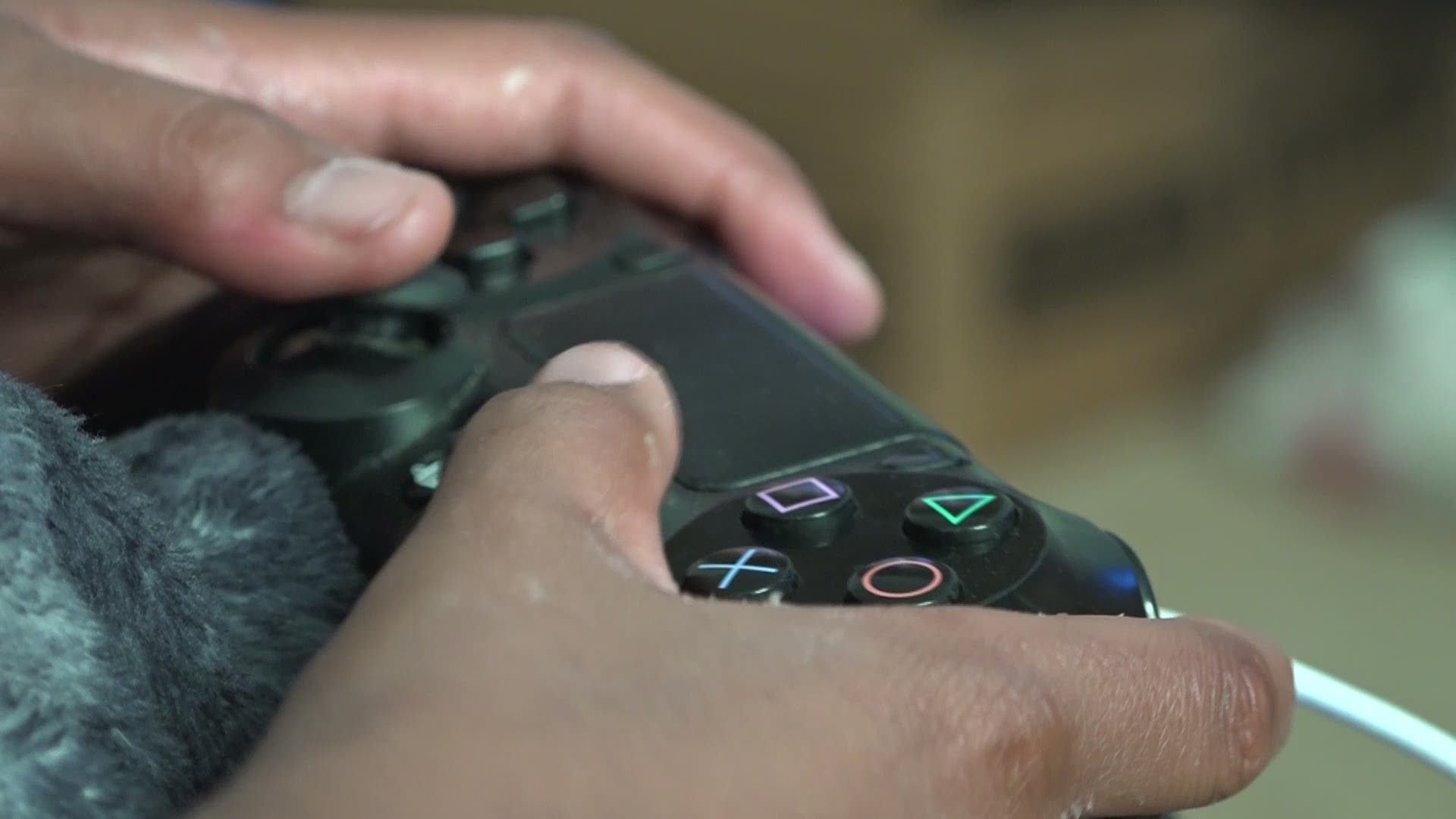NORFOLK, Va. (WVEC) — Like many teenage boys, Tymiere Grayson spends plenty of time playing video games and pretending to be in another world.
His mother, Genene Milligan, might say that Tymiere is her world.
After 2001, New Jersey native Genene thought September would only be reserved for remembering 9/11.
"I was a paramedic," said Milligan. "When that first plane hit... they thought it was [an] accident. I don't think I was there, maybe no more than 15 minutes, when the other plane hit. And that's when it [be]came apparent to all of us around there that it wasn't [an] accident, that it was. a terrorist attack."
Four years after 9/11, the month of September would mean something more for Genene. It's also National Sickle Cell Awareness Month, words all too familiar to her since Tymiere was an infant.
"I actually did not know until after he was born, and they told me at his two-month checkup, 'You gotta take him to get tested for sickle cell.'"
Tymiere tested positive for the disease, and "by the time he was nine months, he had already been hospitalized 17 times," said Milligan.
By the time Tymiere was a year old, he and Genene had moved from Newark to Norfolk to be closer to the Children's Hospital of the King's Daughters.
"I just decided one day... I'm outta here," Milligan said of her move to Hampton Roads. "And I just packed up, packed up all of [Tymiere's] stuff, left the majority of my stuff there, and just got in the car and just drove."
Today, 13-year-old Tymiere gets chronic blood transfusions every four weeks and takes several medications every day. Over the years, the length of his hospital stays has been anywhere from days to months. However, Tymiere figured out how to pass the time.
"He'll start running around [in the hospital] and. joking and playing with the nurses," said Milligan.
Tymiere, wants to share more than just laughs with the world, though. "I just wanted to do something more with my life instead of just sitting in the house all day," Grayson said. "So I kinda just felt like, 'Why don't I just write music?'" Since then, he has written several songs.
Tymiere may have sickle cell for the rest of his life, but he and Genene don't let the disease define their lives.
"The last thing you wanna tell your child is, 'Oh no, you can't do it,'" said Milligan, "because you wanna [tell them], 'If that's what you really wanna do, then we'll find a way for you to do it.'"
For Tymiere and Genene, this September day -- and every day -- is about having each other.
"[My mother] is the best in the world, and I love her," says Grayson.
Sickle cell affects thousands of people, and right now CHKD sees more than four hundred patients with the inheritable disease. Dr. William Owen oversees CHKD's sickle cell program, and he said it's a relatively common disease, especially in African-Americans.
"There are many people out there who are living with sickle cell disease every day who you work with, you see at school," says Dr. Owen. "I think we need to learn about it. There needs to be more fundraising for this, just like there is for cancer."
Sickle cell is treatable, and in recent years it has become curable. However, Dr. Owen said treatment for the cure, which involves stem cell transfer, is not for everyone.

